As Historic Homes Give Way to New Construction, This 1925 West of Trail Cottage Remains
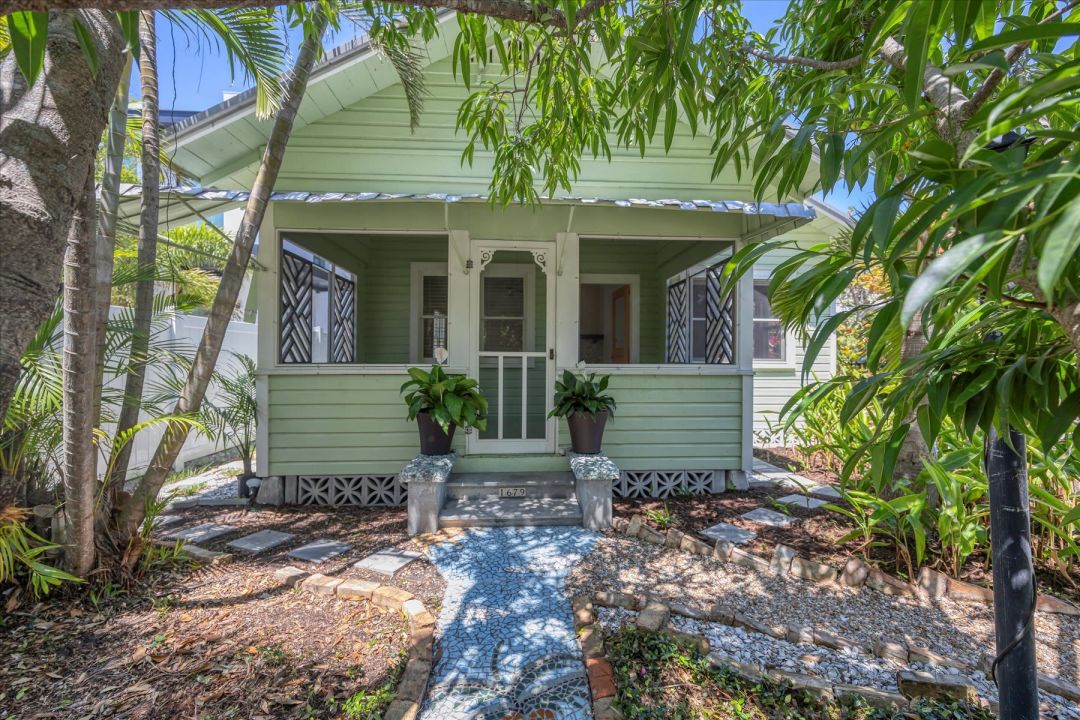
Image: CMS Photography
In a Sarasota neighborhood where the past often stands little chance against the big, often boxy future, 1679 Arlington Street still holds its ground. The 1925 Florida bungalow sits among a dense canopy of mature trees and plants, its screened front porch observing the march of development as teardowns clear the way for high and wide new builds in the coveted West of Trail neighborhood.
Meg Miller and Brad Schneider, a married couple who bought the home in 2002 for $225,000, have spent more than two decades resisting that tide—but the home is now on the market for $895,000.

Image: CMS Photography
Miller and Schneider arrived in Sarasota via New England by way of art school, where they met in the early 1980s. “We’ve always lived in older places,” says Miller, who grew up in a Victorian home. Their previous house, in Massachusetts, was built in 1850 out of salvaged ship wood.
Sarasota, when they discovered it, felt like Naples had thirty years earlier—small, manageable, affordable and still intact. “When I drove up this street, it was like a time capsule,” Miller says. “The old houses were still here.”

Image: CMS Photography
Today, not many of them remain. The Arlington Park and Southside Village area, once a refuge for circus performers who wintered here, has seen rapid redevelopment as its central location, walkability and proximity to both Southside Elementary and Sarasota Memorial Hospital have fueled demand. Today, newly built homes on comparable lots list for $2.5 million to $3 million or more. The original bungalows, like this one, are increasingly rare.

Image: CMS Photography
It also carries echoes of Sarasota’s circus history. In the 1950s, it was owned by Joseph and Genevieve McCarthy, wardrobe heads for the Ringling Brothers and Barnum & Bailey Circus.

Image: CMS Photography
The McCarthys built distinguished careers behind the scenes of the circus. Genevieve, originally from New Jersey, oversaw the maintenance and repair of thousands of elaborate costumes worn by performers on tour, a job requiring constant upkeep to withstand travel and wear. After retiring from their circus careers, Joseph played a quieter but lasting role in Sarasota’s cultural preservation, contributing to the development of the Circus Hall of Fame exhibit at Sarasota-Bradenton Airport in the late 1960s—one of several early efforts to formally honor Sarasota’s circus legacy.


The McCarthys were part of a broader enclave of circus personnel who settled along Arlington Street, including the Flying Wallendas. The Wallendas toured with Ringling seasonally while performing for other circuses in the winter, eventually settling in Sarasota. In 1937, Karl and Helen Wallenda purchased a home nearby, at 1623 Arlington St., where they built a practice area and created a social hub for fellow performers.

Image: CMS Photography
Like many homes of the period, the bungalow at 1679 Arlington St. has been altered over time. When Miller and Schneider bought it, the house was blanketed in white aluminum siding, laid with what Miller calls “airport carpet,” and had a black-painted brick box for a fireplace. The couple stripped it all away.
“We ripped off the siding and found the original novelty siding underneath,” says Schneider. “The floors are heart pine, which we refinished. The tin roof we put on was more authentic for the era.”
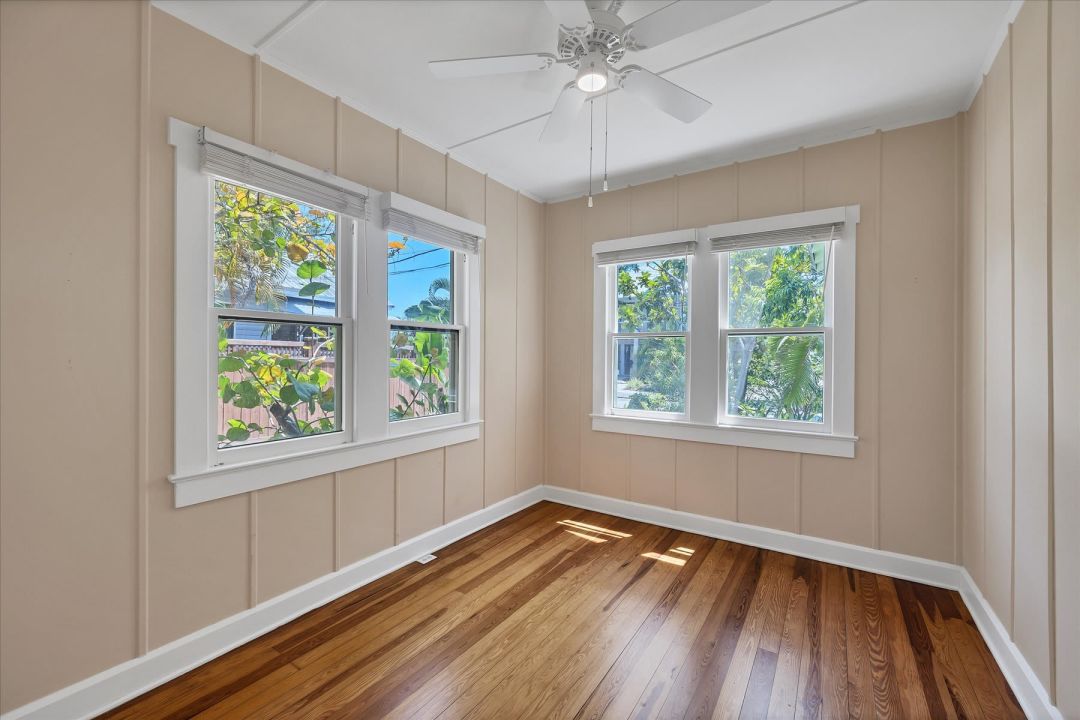
Image: CMS Photography
Miller applied her eye for art to the details. Over the years, she collected smooth shells at Point of Rocks on Siesta Key to build a mosaic that now adorns the fireplace. The pathway leading to the porch is another of her works—a colorful mermaid mosaic assembled from smashed tiles and found pieces gathered over the years working, some while working at Sarasota Architectural Salvage. “It’s my first mosaic,” she says. “I bought a bunch of stuff from yard sales and pieced it together with adhesive grout.”
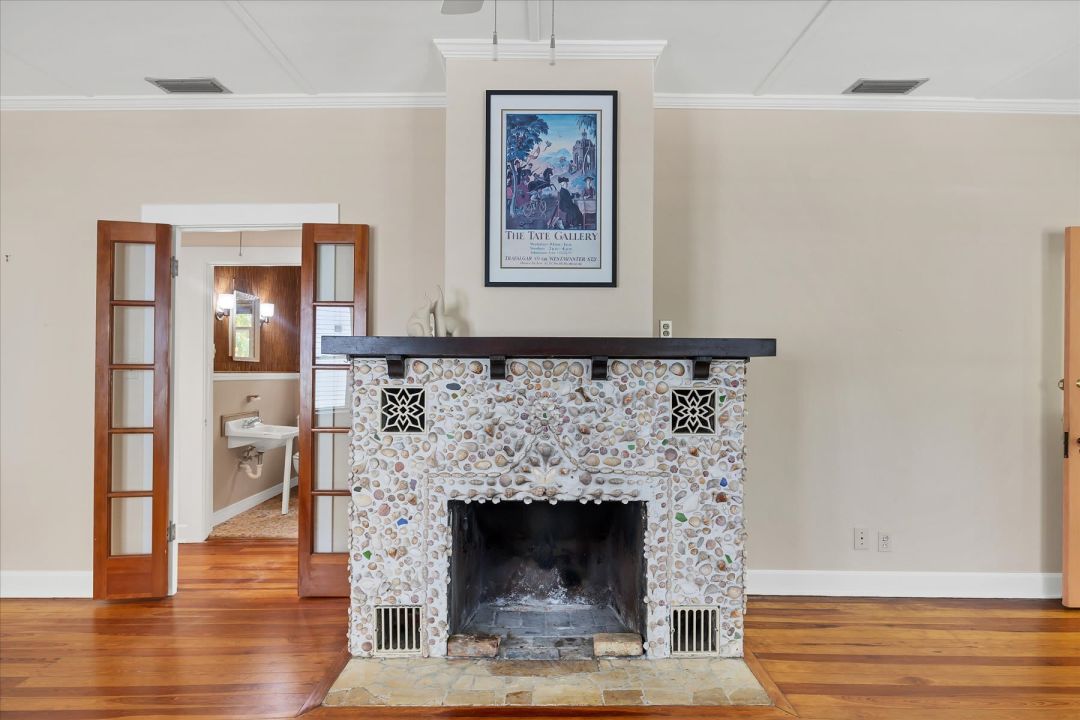
Image: CMS Photography
Inside, the house remains largely untouched in footprint and character. The kitchen still holds its original upper cabinets and fixtures. The pine floors have been refinished but not replaced. Even the "heatilator" fireplace channels warmth into the adjacent bedroom through original metal grates—a system nearly forgotten in modern home design.
In the guest house—also original to the property—beadboard walls and heart pine floors continue the bungalow’s historic narrative. The compact cottage serves as a one-bedroom, three-quarter bath suite.
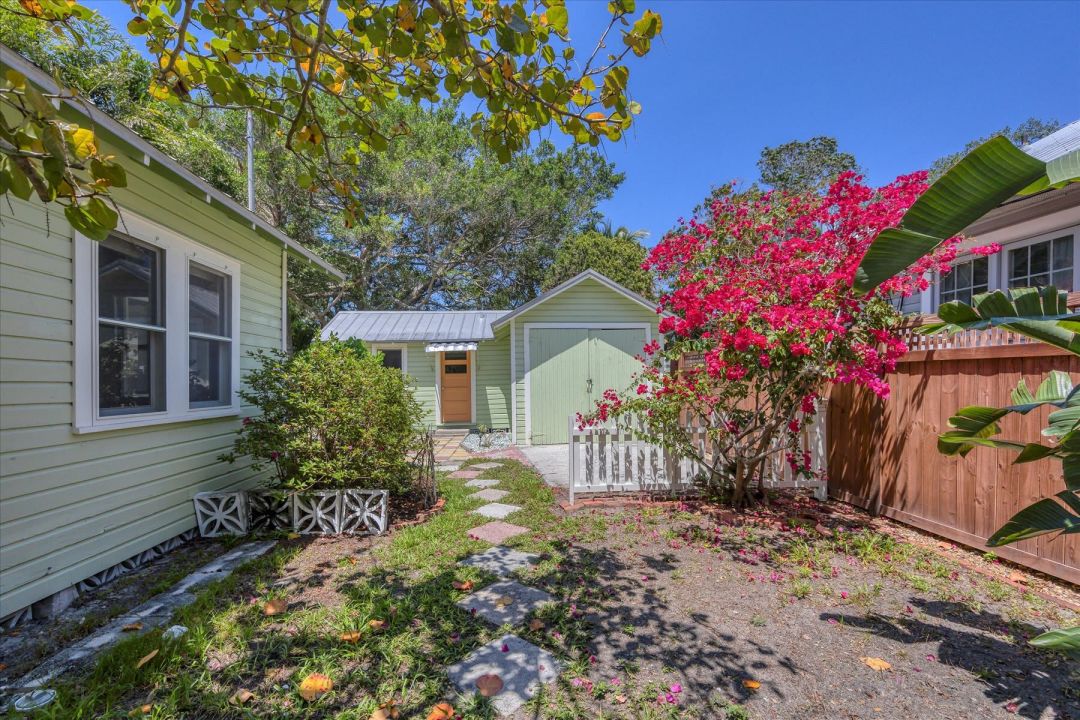
Image: CMS Photography

Image: CMS Photography
The couple did most of the restoration themselves, hiring professionals only for electrical and plumbing work. Outside, Miller transformed what was once a barren lot into a dense garden. “There was nothing growing here when we moved in,” says Schneider. “Now it’s like a little wonderland.”

Image: CMS Photography
Miller and Schneider's own history is entwined with Sarasota’s story, too. Their son was part of a group of local schoolchildren who successfully petitioned the state to declare the orange as Florida’s official state fruit—adding another small thread to the home’s layered legacy.
Now, more than 20 years after they first saw the house, Miller and Schneider are preparing to let it go. “Our kids are grown, and our needs have changed,” Schneider says. They plan to head north to Apalachicola to seek the quiet of a smaller town.
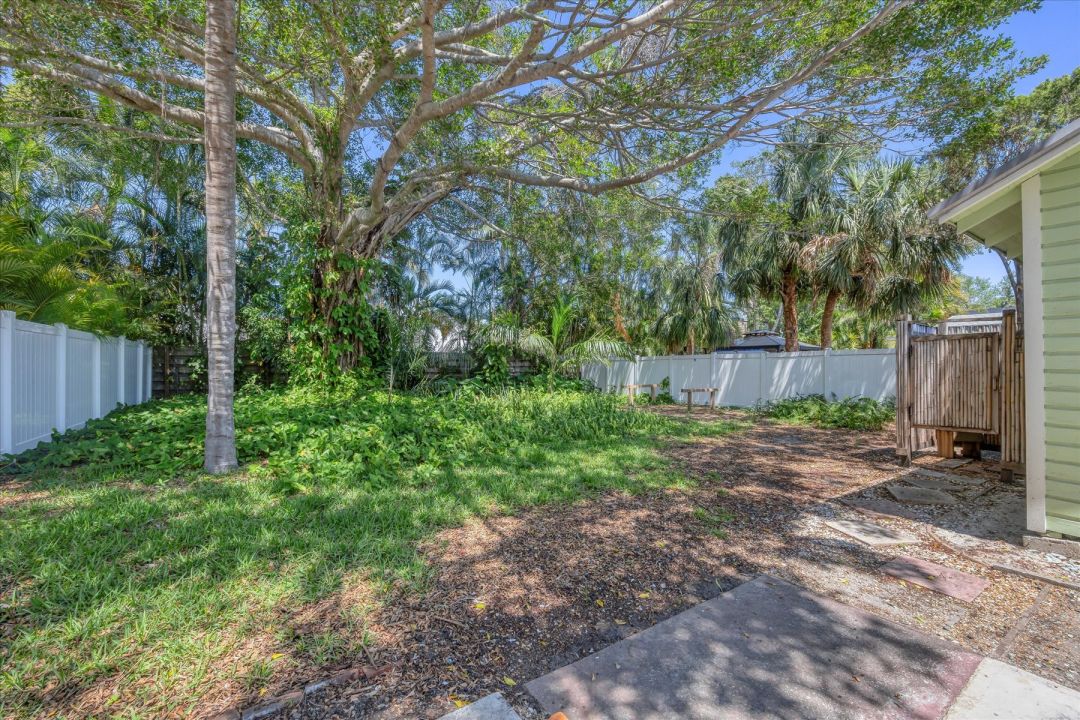
Image: CMS Photography
The home isn’t historically designated, and a buyer could technically tear it down—as recently as September of last year, some nearby homes have been razed and sold for lot values from $835,000 to more than $1 million. But Miller and Schneider hope its next owner will recognize its value.
“The house is still standing because we took care of it,” says Miller. “We hope someone else will.”
Interested? Call Liz Nason of Premier Sotheby's International Realty at (941) 350-2243.



